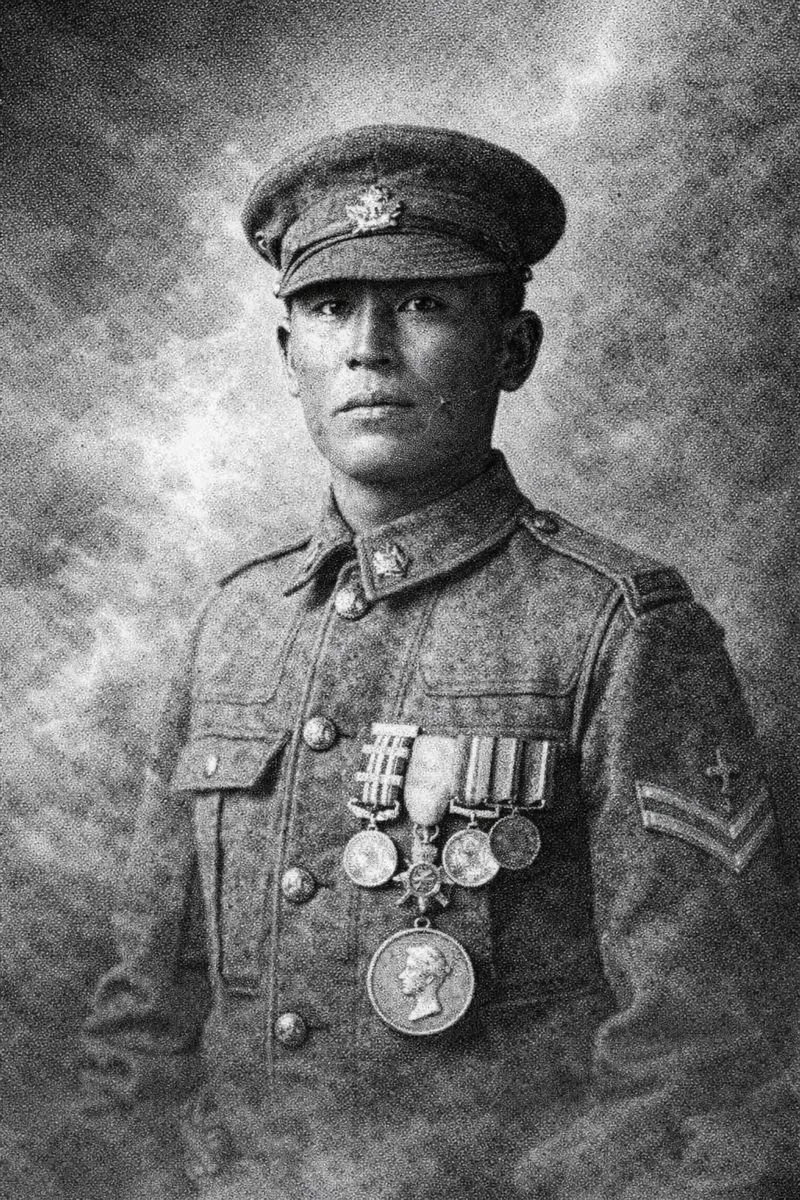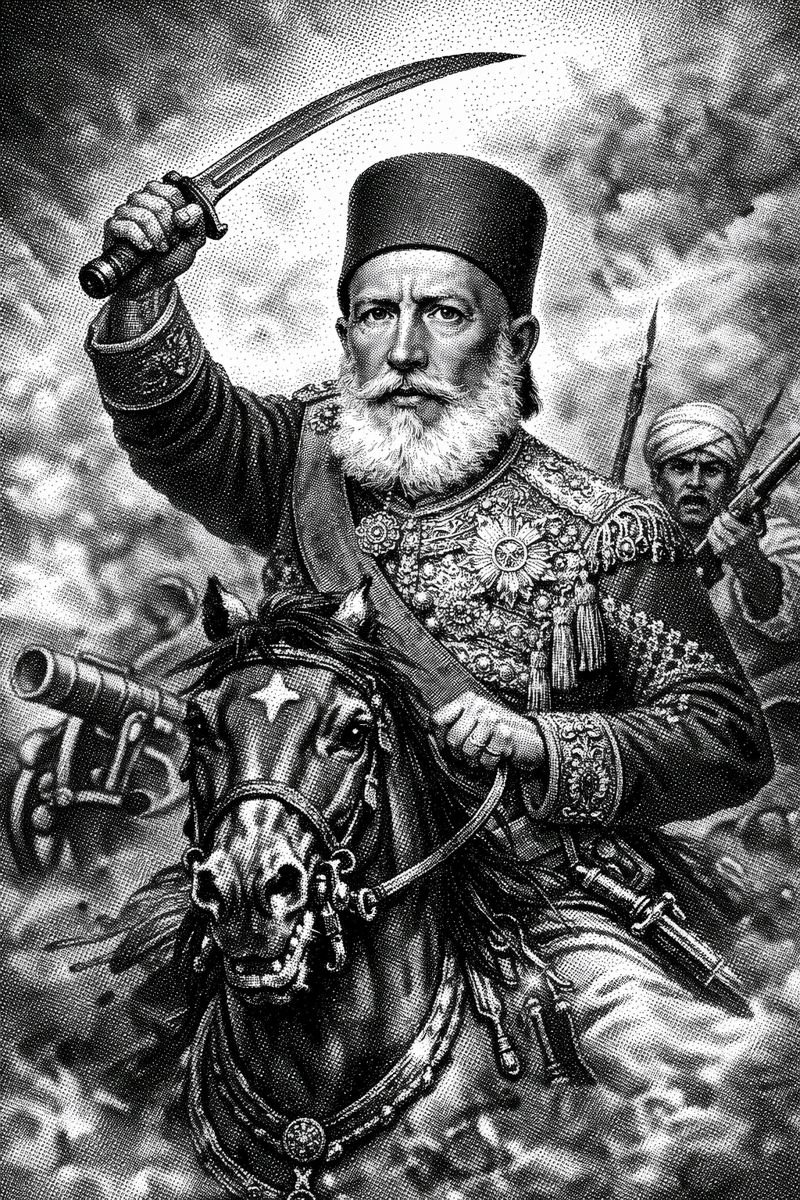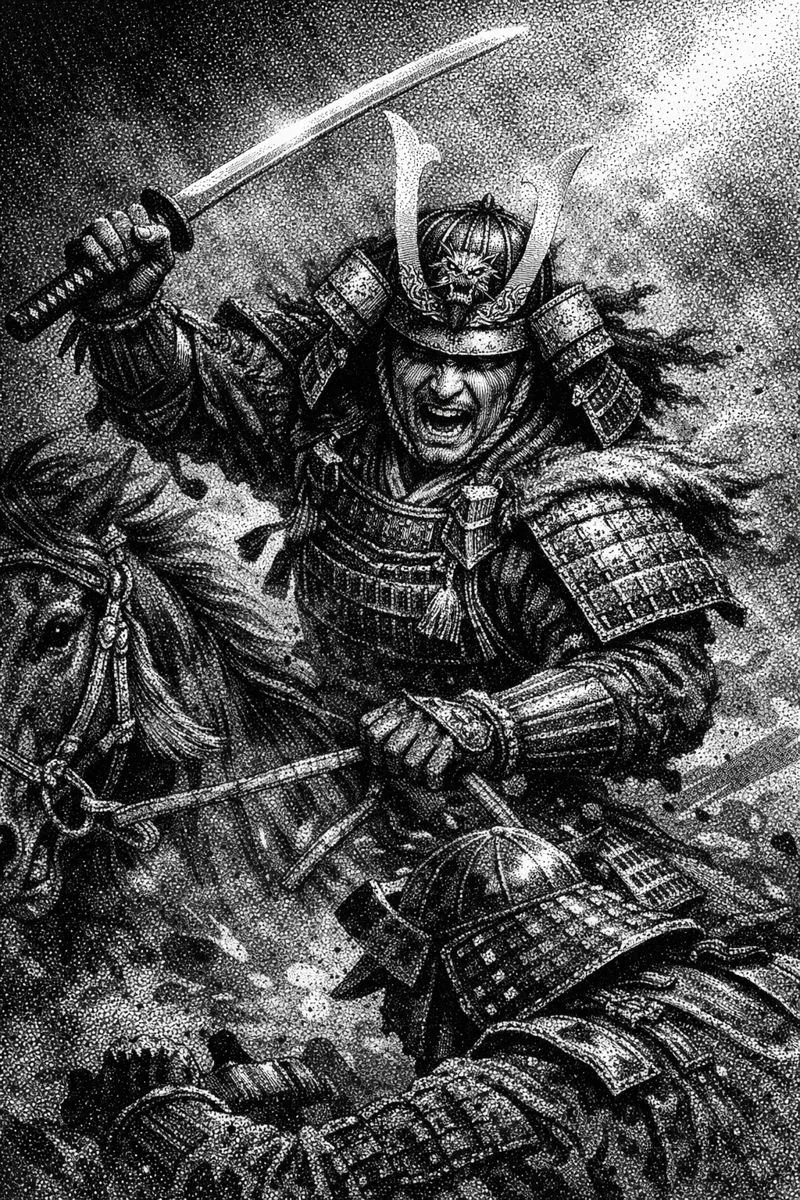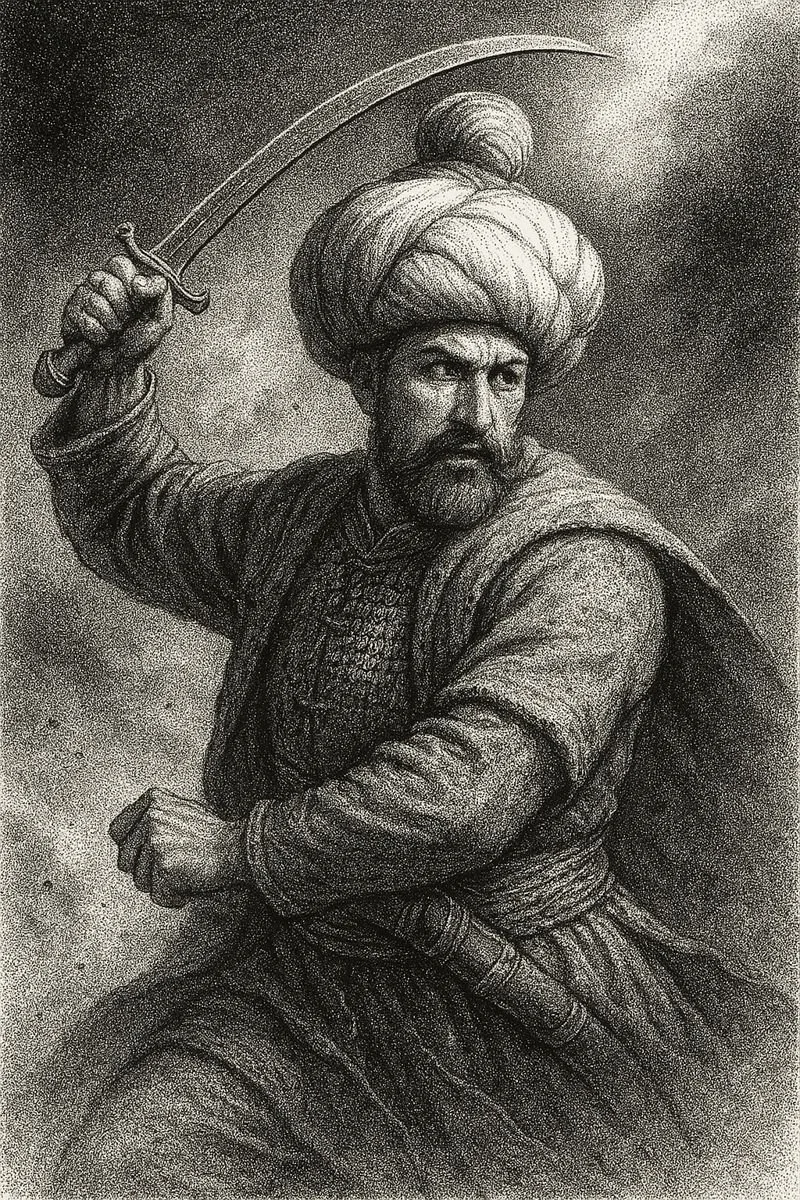Piye
(c. 747 - 716 BCE)
Conqueror of Egypt’s 25th Dynasty
“A king who conquers with mercy still conquers. A king who conquers with fire writes better stories.”
— Supposed saying of Piye, probably invented by a drunk scribe who admired both.”
The city burns like a spoiled offering. Smoke pours upward in thick black ribbons. Horses scream. Men scream louder. And standing in the middle of this collapsing Egyptian mess—like a man who just discovered his neighbor stole his lawnmower—is Piye, King of Kush, Lord of Napata, Taker of Absolutely No Nonsense.
It’s 728 BCE, and Piye has marched north from Nubia with a simple thesis statement:
Egypt has gotten stupid and someone with functioning brain cells needs to fix it.
Also, he’s going to rule it. Minor detail.
He steps through the chaos with a quiet disgust, the kind of face a person makes when they discover the bread was moldy after taking a bite. Every Egyptian petty king he’s deposed so far has begged, bribed, groveled, or spontaneously developed sudden faith in whatever god Piye worships before lunch. It never works. Piye just pats them on the head like unruly children, tosses a few insults about their hygiene, and takes their cities anyway.
Tonight is no different. The smell of beer, sweat, and bad politics drifts from the captured stronghold. Piye watches it burn and mutters something his scribes later record as, “Do not celebrate victory before you’ve washed your horses.”
Translation: Don’t brag until the job is done, you idiots.
The Man from Kush Who Looked North and Saw Idiots
Piye wasn’t born into the Egyptian circus he ended up conquering. He came from Kush—the Nubian kingdom upriver, where the rulers were tougher, the stone was darker, and the kings were too busy being competent to engage in the political clown show taking place in Lower Egypt.
As a boy, Piye learned early that Kushite kings don’t survive by being soft. His father Kashta had already shoved a toe over Egypt’s southern border, partly because Egypt was weak, partly because it was hilarious, and partly because the Amun priesthood liked Kushite rulers better than the homegrown schmucks who kept bankrupting the temples.
Growing up, Piye absorbed a simple worldview:
Kush is strong. Egypt is confused. Confusion is an opportunity.
He was also the kind of deeply religious king who would pause mid-slaughter to pray, then resume with twice the enthusiasm. His devotion to Amun was legendary—so legendary Egyptians started wondering if maybe their southern cousins were the “real” worshippers and they had somehow been doing it wrong for five hundred years.
Egypt: A Piñata Stuffed with Crown-Wearing Clowns
By the time Piye came of age, Egypt was a mood swing wearing a crown. The land was fractured. Local warlords—Libyan chieftains with impressive hair and questionable decision-making skills—had carved the country into little fiefdoms. Everyone wanted to be called “Pharaoh,” even if their kingdoms were the size of a Walmart parking lot.
Into this chaos walked Piye. Tall, dark-skinned, broad-shouldered, wearing enough gold to blind a camel, he arrived at Thebes like a stern father returning from a long trip to find his children had set the house on fire and tried to sell the furniture.
The Theban priests welcomed him like a long-lost savior. The Libyan warlords, on the other hand, reacted with a spectrum of emotions ranging from “mildly alarmed” to “oh gods, oh no, oh no.”
Piye smiled politely, announced he was here to cleanse Egypt, and everyone suddenly remembered they had urgent appointments elsewhere.
A Conquest Fueled by Prayer, Horses, and Disappointment
Piye’s campaign was less a war and more a royal lecture tour. Every city he approached tried the same tactic:
Barricade gates
Panic
Bribe him
Panic again
And Piye, bless him, tried to be patient. He’d parley. He’d negotiate. He’d accept their oaths of loyalty. And then—when they inevitably betrayed him within a week—he’d storm the walls, take the city, and write a poetic victory inscription about how stupid everyone had been.
His army was disciplined, terrifyingly effective, and made of Nubian warriors accustomed to heat, hunger, and the act of conquering people who underestimated them. His archers could hit a fly off a hippo at fifty paces. His cavalry—rare and prestigious in the ancient world—were treated better than the average Egyptian soldier’s wife.
When Piye marched, Egypt noticed.
One by one, cities fell. Herakleopolis tried to resist. Piye took it. Memphis resisted harder. Piye took it and then wrote an entire chapter mocking their defenses like an irritated food critic: “They filled their moats with water as though that would stop me. Pathetic.”
The delta warlords panicked so hard they could have powered a windmill.
The Siege of Hermopolis: Piye’s “Are You Kidding Me?” Moment
Hermopolis thought it could hold out. The city’s ruler, Nimlot, puffed out his chest and proclaimed his defenses impenetrable. He had walls! He had archers! He had a decent drainage system!
Piye took one look at the place and declared, “I will take this city like a falcon takes a dove.”
His men rolled siege towers toward the walls. Archers laid down a hail of arrows. Kushite infantry battered the gates. Piye himself, standing back with theatrical flair, offered the defenders honorable surrender.
They refused.
So he stormed the place, took it anyway, and then—because he was a king of both violence and spite—forced the defeated rulers to kneel before him while he lectured them about morality and proper religious behavior.
Imagine being conquered and then receiving a sermon. Brutal.
The Moment He Became a Legend
The decisive moment—the instant Piye transformed from “bold Kushite king” into “immortal badass carved into stone”—came after he’d defeated every major Libyan ruler in Egypt except one: the powerful Tefnakht, a man with ambition, resources, and absolutely no shame.
Tefnakht, unable to beat Piye militarily, tried propaganda. He declared himself “Great Chief of the West,” claimed victory in battles he ran away from, and tried to unite the delta in a final stand.
Piye responded by marching across the Nile, defeating everyone in his path, and forcing Tefnakht into surrender from a safe distance—because Tefnakht refused to meet him face-to-face, presumably because doing so would cause him to melt like a cheap candle.
Piye accepted the surrender with an angry grace. He could have stayed and ruled directly, but he didn’t. He returned south to Napata, leaving Egypt in the hands of loyal governors. Because ruling Egypt full-time would mean dealing with Egyptians full-time, and Piye had better things to do.
And that is the moment history remembers:
The day a king rode into Egypt, conquered the lot of them, lectured them about piety, and walked out like a man who’d finally cleaned someone else’s filthy house.
Downfall? Wrong King. Wrong Story.
Here’s the twist: Piye didn’t die in battle. He didn’t get betrayed by scheming nobles. He didn’t choke on a grape, fall off a balcony, or die in the arms of eight concubines—though that last one would have made a better inscription.
He died peacefully. In bed. Surrounded by people who respected him.
It’s almost obscene.
While many kings die screaming, Piye slipped into the afterlife like a man who had successfully completed all his errands for the day. His successors would rule Egypt as the 25th Dynasty—the Kushite Dynasty—for nearly a century.
Egyptian scribes, perhaps grudgingly, memorialized him with respect. Later historians marveled at his discipline, his strategy, his religious devotion, and his ability to conquer a land tearing itself apart.
But pop culture? Ah, pop culture tried.
Some painted him as a civilizing hero. Others as a foreign usurper. Others ignored him completely because he didn’t fit their neat narratives. And some—especially the ones who don’t read much—confuse him with later Nubian kings or think the Kushites were just Egypt’s angry neighbors instead of the people who actually saved Egypt from itself for a hot minute.
But Piye doesn’t care. He’s dead. He won. His dynasty stood. His city of Napata prospered. And his victory stela still stands, a thousand lines of royal contempt carved forever into stone.
It reads like a Yelp review written by a war god.
warrior Rank #176
Sources
László Török, The Kingdom of Kush: Handbook of the Napatan-Meroitic Civilization.
Kenneth Kitchen, The Third Intermediate Period in Egypt.
A. J. Spencer, “Piye’s Victory Stela,” British Museum commentary.
Toby Wilkinson, The Rise and Fall of Ancient Egypt.
The “Book of Kings Who Were Too Tired of Nonsense.”
How to Conquer Egypt for Beginners, attributed to “Some Nubian Guy.”
Interviews with imaginary Kushite horses (“neigh” = partial translation).
















Charles XII of Sweden was a warrior-king who personally led his armies through the Great Northern War, turning early victories into legend through ferocious discipline and reckless courage. His refusal to compromise or retreat ultimately shattered Sweden’s empire, leaving behind a mythic figure admired for bravery and criticized for destroying everything he fought to protect.
Rank - 125